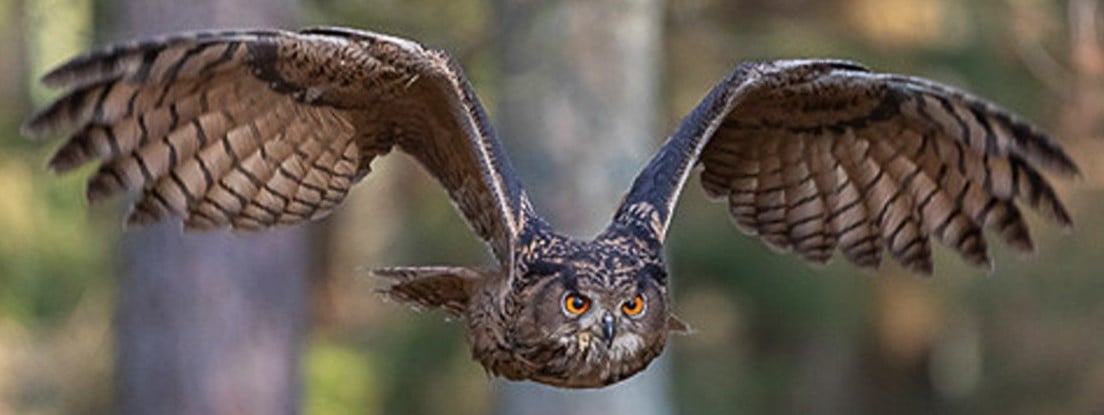Superbowl
For owls that are superb.

US Wild Animal Rescue Database: Animal Help Now
International Wildlife Rescues: RescueShelter.com
Australia Rescue Help: WIRES
Germany-Austria-Switzerland-Italy Wild Bird Rescue: wildvogelhilfe.org
If you find an injured owl:
Note your exact location so the owl can be released back where it came from. Contact a licensed wildlife rehabilitation specialist to get correct advice and immediate assistance.
Minimize stress for the owl. If you can catch it, toss a towel or sweater over it and get it in a cardboard box or pet carrier. It should have room to be comfortable but not so much it can panic and injure itself. If you can’t catch it, keep people and animals away until help can come.
Do not give food or water! If you feed them the wrong thing or give them water improperly, you can accidentally kill them. It can also cause problems if they require anesthesia once help arrives, complicating procedures and costing valuable time.
If it is a baby owl, and it looks safe and uninjured, leave it be. Time on the ground is part of their growing up. They can fly to some extent and climb trees. If animals or people are nearby, put it up on a branch so it’s safe. If it’s injured, follow the above advice.
For more detailed help, see the OwlPages Rescue page.
view the rest of the comments

Those are homophones. If I told you about the source of the Nile I could be talking about something Egyptians put on their chips.
All occurrences of "au"? Audience? Cautious? Daughter? Or is there some kind of restraint like only if the proceeding consonant is hard or soft?
I have posted an audio clip up there ↑ in this very thread!
All those examples are the same sounds to me. With how English spelling is, there are 'au' words I say differently (I say "because" like "b'cuzz"), but I can't think of any that would rhyme with cross
I've also heard giraffe pronounced "girarffe" by a Brit. (Or at least implied since it was rhymed with "scarf" in a Julie Donaldson book.) Maybe there's some rule regarding "R" sounds on the ends of certain vowel sounds.
Aha! You have discovered the non-rhotic accent. Most, but not all Brits (along with Aussies and some rural Americans) do not usually sound out r's unless they're followed by a vowel. In my northern England accent, giraffe and scarf have different a sounds, but also scarf has no audible r. I'd guess Julia Donaldson speaks more Southern or RP so giraffe would rhyme with scarf would rhyme with half.
Aww, you silly Brits.
My buddy (we're from Canada) went to Australia for some time. He was a smoker, and lived with a bunch of other smokers. In Canada, if you want to ask someone for a smoke, you say "Can I bum a smoke?". In Australia, it's "Can I get a fag?" In the spirit of international cooperation, the expression soon became: "Can I bum a fag?" Much maturity.
That's not an English thing that's an "English" thing.
I thought about this a little and I agree that I don't think there's any English words other than "because" that have the ɒ sound for "au". They're basically all ɔː.
You can look up the pronunciations for those symbols by searching for "IPA English". It helps for describing vocal sounds.